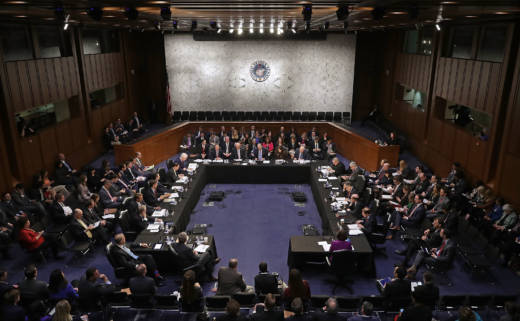Senate Democrats now have enough votes to block the Supreme Court nomination under current Senate rules, which require 60 votes to proceed on a nomination.
That sets up a showdown later this week that will likely lead to a reinterpretation of Senate rules, so that the nominations of Supreme Court justices can be advanced with 51-vote majorities, rather than the preliminary 60-vote threshold that has long applied to high court nominations.
"If we have to, we will change the rules," Republican Sen. Lindsey Graham of South Carolina said during Monday's Judiciary Committee meeting. "It looks like we're going to have to."
Graham's comment came after two senior Democrats on the committee, Sen. Dianne Feinstein of California and Sen. Patrick Leahy of Vermont, said they'd vote no on cloture for Gorsuch. They were seen as Senate traditionalists who may have voted yes, at least for the preliminary vote, in order to avoid what's long been known as "the nuclear option."
Sen. Mark Warner of Virginia also announced Monday he'd oppose Gorsuch in a cloture vote. Sen. Chris Coons of Delaware was the 41st Democrat to announce a "no" vote on cloture, doing so during the Judiciary Committee meeting.

9(MDAxOTAwOTE4MDEyMTkxMDAzNjczZDljZA004))